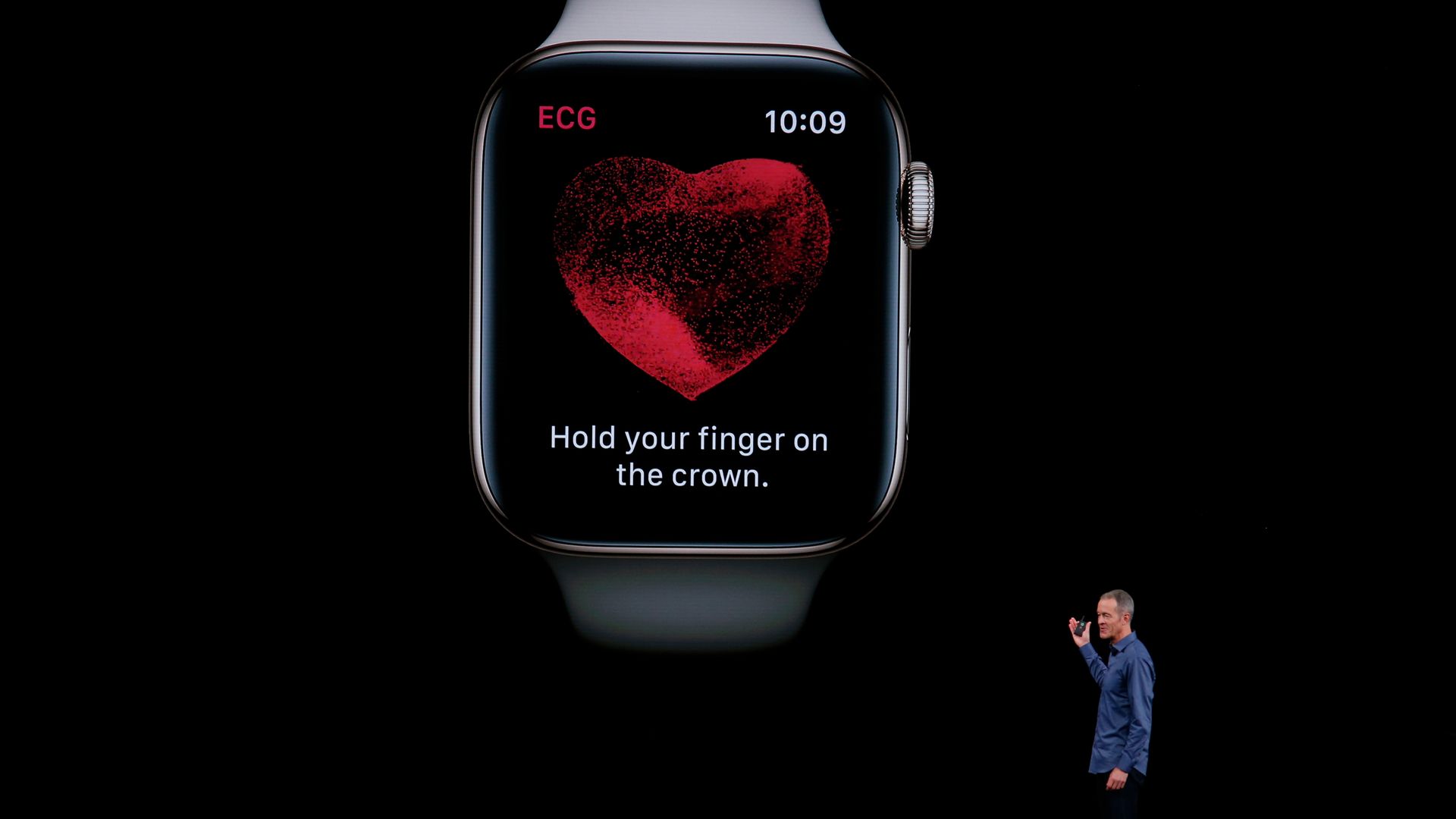Dec 13, 2018 - Technology
Apple has hired dozens of doctors to back up health offerings
Add Axios as your preferred source to
see more of our stories on Google.

Apple COO Jeff Williams introduces the new Apple Watch, capable of taking an FDA-approved electrocardiogram. Photo: Karl Mondon/Digital First Media/The Mercury News via Getty Images
